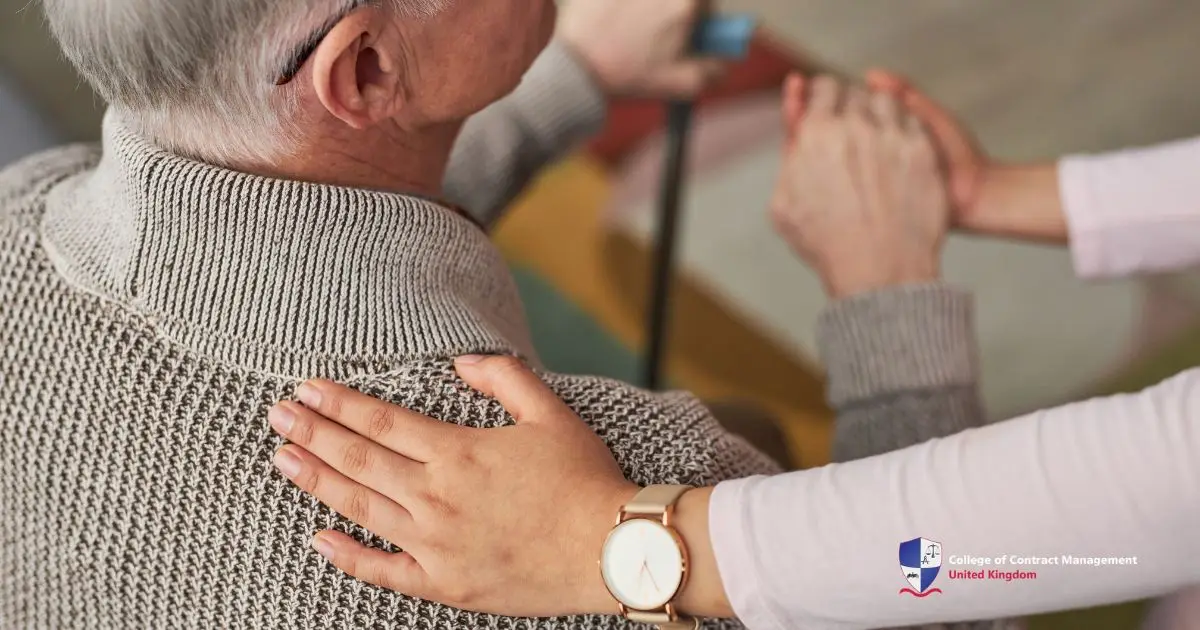Community care workers are the pillars of the modern healthcare system. They help in improving the lives of individuals who need extra support. This significantly helps reduce the pressure on hospitals and personal care workers. Sometimes it is difficult to imagine a day in the life of these unsung heroes. Yes, they work tirelessly to make it possible for people to live a better life, yet their efforts sometimes go unnoticed.
Research shows that around 1.5 million people in the UK work in the community care sector. This is a significant number for a national workforce unit to allow people to live in the comfort of their homes. They also reduce the number of hospital admissions for minor issues. Also, it is evident that the majority of the population is ageing and the healthcare sector is growing in demand. Although, the demand for care workers is increasing people are still not fully aware of what these professionals do daily.
This article will give you a detailed glimpse into the day of the life of a community care worker. It will also help you understand some of their responsibilities and why their work is important for society. Also, it will highlight some of the challenges in this unnoticed profession.
Who is a community care worker?
A community care worker is a professional who provides support and help to individuals in their homes or the community. They play a very important role in providing care for sensitive people and those with disabilities. They make sure people can maintain their dignity and live a good life. Also, get the care assistance they need in their home or a comfortable environment.
These care workers are the first point of contact for someone who needs assistance but doesn’t need to go to the hospital or a professional care setting. They can help in several activities such as personal care, household tasks, medication, and companionship to deal with isolation. They also help patients who struggle with mental well-being and provide them with emotional and psychological support.
Guide to becoming a successful community care worker
A community care worker doesn’t require years of education or any fancy degrees. If you have the correct training, passion, and empathy towards people then you are a perfect match for the role. If you are new to the healthcare sector, this guide will help you understand everything you need to succeed in the role.
1. Understand the Role and Responsibilities
It is very important to have a thorough understanding of the day-to-day demands of the role. community care workers provide care and support to individuals in their homes or local communities.
2. Educational Requirements and Qualifications
There is a specific educational pathway that can help you stand out as a community care worker. One of the basic requirements is a high school diploma, but some additional training and certifications can always help you stand out. The College of Contract Management offers courses and programmes that can help you create a pathway for this role.
- Official Care Certificate
- National Vocational Training (Level 2 or 3 in Health and Social Care)
- Specialised Training (e.g., First Aid medication or dementia training can be useful while working with elder clients)
3. Relevant Work Experience
Having practical experience can be an advantage in becoming a successful community Care Worker. You can gain experience by working as a volunteer or working in entry-level healthcare roles.
4. Develop your Skills
community care workers require a mix of both hard and soft skills to provide support for those in need. Courses and programmes for the College of Contract Management can be beneficial to help you enhance these skills.
- Communication Skills
- Empathy and Compassion
- Problem-Solving Skills
- Time Management
A day in the life of a community care worker
Community care work plays an essential role in supporting people who need support and assistance due to illness or disabilities to live a fulfilling life. The scope of their responsibilities can be different, and changes according to the needs of the patient they will support. Some may be more on assisting with mobility, while for others it may be more on companionship.
However, the crux of their role will be providing passionate care and support. Let us take a glimpse of a day in their life:
Morning: Start with Preparations
Their day begins with planning their schedules and preparing for clients they will visit. This might include checking appointments, and medications or assisting with personal care. Some of the activities are:
- Personal Care: Bathing, dressing, preparing breakfast
- Medication Administration: Managing and administering medicines for their patients
Midday: Provide essential Care and Support
During the day, community care workers will progress towards tasks that include client well-being. These tasks include:
- Meal Preparations
- Cleaning and Household assistance
- Emotional support and companionship
Afternoon: More Care Visits and Reporting
In the afternoon, community care workers might visit other clients. And perform similar routines. However, some tasks might be different based on the client's needs. Such as:
- Physical Assistance: Help them with either walking or using a wheelchair. Also, ensure they are safe while moving around the house.
- Social and Entertainment Activities: Help them with light activities such as reading, playing games, or doing light exercise
- Regular Health Checkups: Monitor their health check for signs of health issues and make sure their medical needs are met.
End of the day: Documenting and Preparing for the next day
After the last visit, they spend most of their time on administrative tasks. These include:
- Documentation: Complete all the records and include the client’s condition for the day. Accurate documentation is very important to maintain proper coordination with other healthcare workers.
- Preparing for the next day: They need to organise their schedule for the next day. And also review specific care instructions from previous care workers.
Challenges faced by a community care worker
Being a community care worker is a rewarding job, but it has its own set of challenges. These heroes must identify different challenges to provide the best care for their clients while maintaining their well-being. Understanding these challenges can help them better prepare for the evolving demands of the role.
- Caring for emotionally vulnerable clients can have an impact on the carer’s emotional well-being. Especially for those who have built a bond with their clients and have to witness their declining health or dealing with serious diseases.
- The work often has physical demands. Conditions such as lifting or helping clients move can be a physical strain on carers. They must be careful to avoid injuries that might occur while assisting the client.
- With many clients to visit in a day, they might sometimes struggle with time management. However, they must be able to balance care quality with the time constraint. This is to make sure every client receives the attention they need.
Conclusion
Community care workers are the heroes who support individuals in living a good life with dignity. They also provide essential care and support for those who need it the most. The job is very rewarding but it has its own set of challenges. From emotional strain to managing time and limits they still make sure every client receives the care they deserve.
If you are someone who believes in making a difference in society then this job is a perfect fit for you. However, to be a successful community care worker you need the right knowledge, skills, and training. The College of Contract Management offers training and qualifications that will help you take the next step in your career. Their courses are focused on healthcare management, contract management, and compliance which will provide you the tools you need to excel in this field. Don’t let challenges hold you back and take the first step towards a rewarding career.





